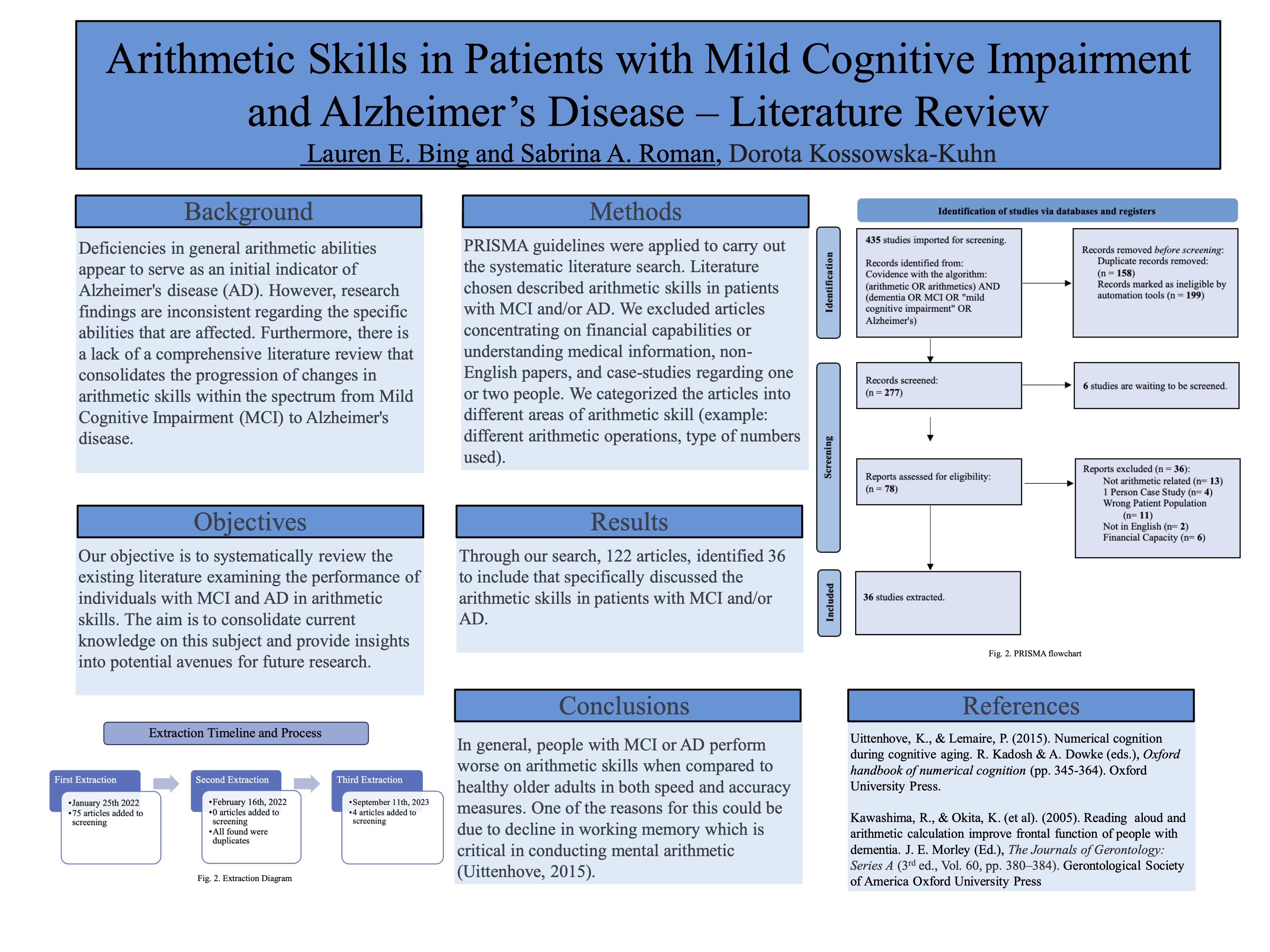Research Symposium
24th annual Undergraduate Research Symposium, April 3, 2024
Lauren Bing Poster Session 3: 1:30 pm - 2:30 pm /69
BIO
Hello, my name is Lauren Bing and I am a junior at Florida State University. I am working towards my bachelors degree in Exercise Physiology with a minor in Child Development with hopes of attending medical school for my post graduation. I have been in love with science since I was little. With many medical field role models in my life, I was immersed into the world of taking care of people. I wanted to help patients like my mentors around me, and with their support, I hope to have the opportunity to fulfill this dream in my future. During my education at FSU, I have participated in Division 1 track and cross country for three years. It has been a blessing to be able to continue to run for such a prestigious program while also pursuing my dreams of becoming a doctor. In my free time, I volunteer and lead a youth ministry group called YoungLife for middle schoolers in the Tallahassee area. This has given me a lot of opportunity to grow in my community in college while also learning how to become a strong mentor.
Arithmetic Skills in Patients with Mild Cognitive Impairment and Alzheimer’s Disease – Literature Review
Authors: Lauren Bing, Dorota Kossowska-KuhnStudent Major: Exercise Physiology
Mentor: Dorota Kossowska-Kuhn
Mentor's Department: Psychology Mentor's College: Florida State University Co-Presenters: Sabrina Roman
Abstract
Background: Deficiencies in general arithmetic abilities appear to serve as an initial indicator of Alzheimer's disease (AD). However, research findings are inconsistent regarding the specific abilities that are affected. Furthermore, there is a lack of a comprehensive literature review that consolidates the progression of changes in arithmetic skills within the spectrum from Mild Cognitive Impairment (MCI) to Alzheimer's disease.
Objective: Our objective is to systematically review the existing literature examining the performance of individuals with MCI and AD in arithmetic skills. The aim is to consolidate current knowledge on this subject and provide insights into potential avenues for future research.
Methods: PRISMA guidelines were applied to carry out the systematic literature search. Literature chosen described arithmetic skills in patients with MCI and/or AD. We excluded articles concentrating on financial capabilities or understanding medical information, non-English papers, and case-studies regarding one or two people. We categorized the articles into different areas of arithmetic skill (example: different arithmetic operations, type of numbers used).
Results: Through our search, 122 articles, identified 36 to include that specifically discussed the arithmetic skills in patients with MCI and/or AD.
Conclusion: In general, people with MCI or AD perform worse on arithmetic skills when compared to healthy older adults in both speed and accuracy measures. One of the reasons for this could be due to decline in working memory which is critical in conducting mental arithmetic (Uittenhove, 2015).
Keywords: Arithmetic, Alzheimer’s disease, mild cognitive impairment, mathematic

